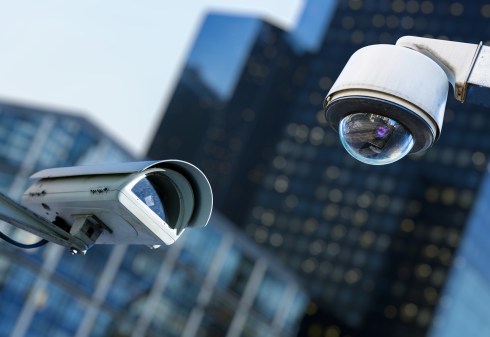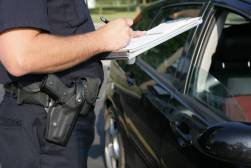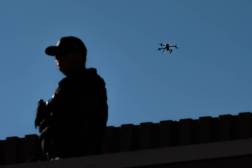San Francisco moves ahead with plan to equip all police with body cameras

San Francisco is moving ahead with a plan to equip its police officers with body cameras, after Mayor Ed Lee struck a deal with the city’s police union on a policy to govern the technology.
Lee announced the agreement with the San Francisco Police Officers Association on Tuesday, and the city’s Police Commission — the board of political appointees who set policy for the city’s police department — approved the body camera policy Wednesday. Now, Lee is pushing for the city’s Board of Supervisors to pass his new biennial budget, which includes $6.2 million to fund the purchase of 1,800 body cameras and the rest of the program’s rollout.
“We are making critical investments in funding police department reform, rebuilding community trust and bringing a culture change in how we handle conflicts on our City streets,” Lee said in a statement. “This new agreement will help get body worn cameras to every patrol officer, to keep both residents and police officers safe and help keep San Francisco one of the safest big cities in the nation.”
But the process of reaching this deal with the police union has been a contentious one for Lee’s administration, cast against the backdrop of a spate of officer-involved shootings over the last few months.
The two sides have been working to create a draft policy for the program since last June, yet one of its provisions attracted criticism from civil rights groups. Specifically, some took issue with the fact that officers would have been allowed to view their camera footage before giving statements on incidents like officer-involved shootings or the deaths of people in custody.
“Officers should be on the same footing as witnesses and victims of police violence, and give statements and reports without viewing footage that could alter their memory,” Tessa D’arcangelew, an organizer with the American Civil Liberties Union of Northern California, wrote in a November blog post. “Doing so would give the public confidence that any officer’s side of the story is an accurate portrait of their memory, rather than an inadvertent or intentional self-serving account of what appears in the video footage.”
[Read more: Yale researchers demand public access to police body cameras]
By December, the union and administration reached a tentative agreement on a version of the policy that would have restricted officers in those cases from viewing the footage at all, unless the police chief signed off on it.
But negotiations continued through Tuesday, when the two sides agreed on a final policy. In cases of officer-involved shootings, in-custody deaths or any other “criminal matter,” officers will now have to give a statement first, and then will be permitted to view the footage.
The final document also lays out other provisions governing the cameras, including when officers can activate the devices and how they should store camera footage.
The policy attracted plenty of debate at Wednesday’s meeting of the Police Commission, but the group ultimately approved it by a 5-2 vote.
Now, all that remains is for Lee to persuade lawmakers to approve funds for the program. He said he’ll work with the Board of Supervisors “over the next month” on the new budget, with the goal of getting the first cameras out in the field by Aug. 1.
Contact the reporter at alex.koma@statescoop.com, and follow him on Twitter @AlexKomaSNG.






